As environmental conservation has become a hot topic globally, many industries are adopting green practices to reduce their ecological footprint, and the HVAC (Heating, Ventilation, and Air Conditioning) industry is no exception. To complement this shift, homeowners must also endeavor to apply eco-friendly methods in maintaining their HVAC systems. The benefits of sustainable HVAC maintenance are twofold: homeowners can lessen their environmental impact while simultaneously reducing energy expenses.
Sustainable HVAC maintenance practices mainly aim at enhancing the energy efficiency and lifespan of these systems, while minimizing harmful emissions. Here are tried-and-true eco-friendly practices homeowners can embrace for sustainable HVAC maintenance.
Energy Efficient Equipment
The first step toward sustainable HVAC maintenance is having energy-efficient equipment installed. Modern HVAC systems are designed with energy efficiency in mind. They use far less energy than their older counterparts, while providing the same, if not better, indoor comfort. Energy Star rated HVAC systems are a great choice to consider as they are tested and proven to meet energy-efficiency guidelines set by the Environmental Protection Agency.
Regular Maintenance
Regular maintenance is one of the most effective ways to ensure that your HVAC system operates in a sustainable manner. Routine tune-ups by a licensed professional will keep your system running at peak efficiency. Tasks such as cleaning or replacing filters, inspecting system components, and sealing leaks can significantly reduce your HVAC system’s energy use, thereby reducing its environmental impact.
Programmable Thermostats
Programmable thermostats are an excellent innovation that can drastically contribute to sustainable HVAC maintenance. They allow homeowners to automate their HVAC usage based on their preferences and lifestyle, reducing unnecessary energy consumption. For instance, you can adjust your thermostat to use less heating or cooling when no one is home, thereby saving energy and reducing greenhouse emissions.
Proper Insulation
A well-insulated home can significantly cut down on energy waste. With good insulation, your HVAC system won’t have to work as hard to maintain comfortable indoor temperatures, thus saving energy. Insulating your house effectively prevents heat loss in winter and keeps cool air in the summer.
Use of Eco-friendly Refrigerants
Older HVAC systems usually use refrigerants like chlorofluorocarbons (CFCs) or hydrochlorofluorocarbons (HCFCs) that contribute to greenhouse gas emissions. Switching to HVAC systems that use eco-friendly refrigerants like hydrofluorocarbons (HFCs) can reduce your home’s carbon footprint.
Investing in Renewable Energy
To further bolster your sustainable HVAC maintenance practices, consider integrating your HVAC system with renewable energy resources. Solar panels and geothermal energy systems are excellent renewable energy sources that can power your HVAC system. With these, you drastically reduce reliance on fossil fuels, contributing significantly to environmental conservation.
In conclusion, sustaining the environment for future generations starts with the decisions and practices we employ today. As homeowners, it’s incumbent upon us to adopt eco-friendly practices in all we do, HVAC maintenance included. With the implementation of energy-efficient equipment, regular maintenance, programmable thermostats, proper insulation, eco-friendly refrigerants, and investing in renewable energy, we can significantly reduce our environmental impact while enjoying comfortable and healthy living spaces. Remember, sustainability does not compromise comfort – it enhances it.

